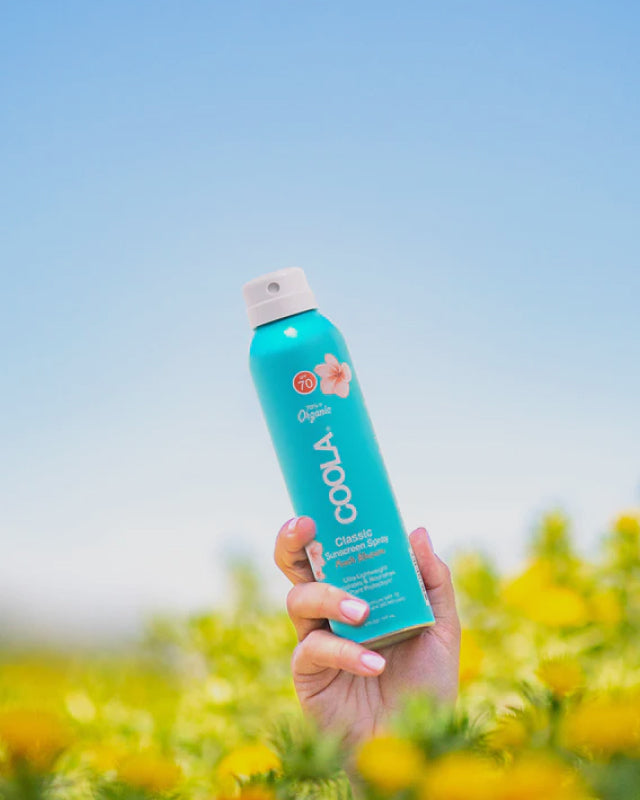
How Long Does Sunscreen Last on Face?
The importance of sun protection in your daily skincare regimen can’t be understated. With the sun being the primary cause of aging and skin cancer, applying sunscreen is the most important step in your skincare routine.
You may already know that sunscreen isn’t just reserved for hot sunny days because UV rays penetrate through clouds and windows. Even on an overcast day, the sun can cause damage to your skin, and you may even find an unexpected sunburn or skin damage.
Because of this, dermatologists recommend wearing sun protection factor or SPF daily. But how long does SPF last on your face? And how important is it to reapply? In this article, you’ll learn everything you need to know about protecting your skin all day, and how to best incorporate it into your daily routine for healthy skin.
What to Look for in a Sunscreen
It starts with finding the right SPF product. Not all sunscreens are created equal. How do you find the right one for you? Here are the top three things you need to look for when choosing a facial product with skin protection, no matter your skin type.
Always make sure the label says broad spectrum, as this means it provides broad spectrum protection from UVA and UVB rays, both of which can damage the skin, even causing certain skin cancers. If it doesn’t say broad spectrum, it may only be preventing UVB rays and not offering UVA protection.
Look for products that contain SPF 30 or higher. Contrary to popular opinion, the SPF value does matter, and the higher the SPF, the better protection it offers against harmful UV rays and sun damage. To gain a deeper understanding, dive into how to understand SPF values. Additionally, dermatologists recommend using an SPF 30 at the minimum each day to help protect the skin.
Water-resistant sunscreen is also important, especially if you sweat naturally during the day or know that you’ll be swimming. This will ensure your sunscreen lasts longer.
Additionally, you will want to consider your skin type and skin care goals when choosing a product. Do you have dry skin, combination skin, or oily skin? Are you looking to remedy adult acne, fine lines and wrinkles, large pores or redness, sun spots, or blemishes? Do you have sensitive skin? Are the ingredients organic? All of these factors should be considered when selecting a product that is right for you.
How to Incorporate Sun Protection into Your Daily Skin Care Routine
Begin your skincare routine with a gentle cleanser to rid your face of dirt, oil, makeup, and any other impurities. COOLA’s organic Glowing Greens Detoxifying Cleanser uses seaweed and cucumber extract to detoxify pores and remove impurities without stripping skin. Next, apply pH-balanced toner like COOLA’s organic Rewakening Rosewater Mist to help balance your skin and ready it for the rest of your routine.
The next step is to apply your SPF. If using a non-mineral SPF, it’s recommended to apply this before your serums and moisturizers, for the sun protection to work most effectively. You can use a lightweight daily SPF like COOLA’s organic Sun Silk Drops to layer SPF under your other products. Or, if you’re looking to simplify your routine, using a serum that contains SPF takes care of multiple steps at once. COOLA’s organic COOLA’s Dew Good Illuminating Serum SPF 30 is a 3-in-1 lightweight serum that instantly illuminates skin and hydrates all day while providing SPF 30 protection.
If you prefer to use your own treatment serum or if you’re looking for added moisture and protection, apply COOLA’s organic Refreshing Water Cream SPF 50, which provides intense hydration and protection while also defending from blue light and external stressors. If you’re looking for a water-resistant sunscreen, COOLA’s Classic Face Lotion SPF 50 feels light enough for daily use, yet provides powerful, water-resistant protection.
Be sure to apply your skin care products with broad-spectrum sunscreen all over your face, neck, and decolletage. Then, apply makeup as the last step of your routine.
How Often You Should Reapply Sunscreen
But it doesn’t end there. Most of the time, we do our skincare routine in the morning, head out for the day, and call it a day. But is this enough sunscreen to keep our skin healthy and beautiful?
Unfortunately, the drawback of SPF is that it degrades over time. Additionally, sweating or touching the face can cause the sunscreen to wear off. Because of this, to keep your skin protected, you will want to reapply sunscreen every two hours, according to the FDA and The Skin Cancer Foundation. If you go swimming, are going in and out of the water, or are sweating profusely, you will need to reapply even more frequently. Sunscreens are required to label if their water resistance lasts 40 minutes or 80 minutes. Look at your product’s label to determine if you must reapply after 40 or 80 minutes. Additionally, wearing sunscreen indoors and protective clothing when exposed to direct sunlight provides an additional layer of skin protection from UV rays.
That gets to the challenge of how to reapply. Who wants to do their full skincare routine again in the middle of the day? Fortunately, there are organic face sunscreen products specially designed to make reapplication easy. If it’s a day where you’re mostly indoors, using a lighter SPF like COOLA’s organic Refreshing Water Mist SPF 18 gives a boost in both hydration and sun protection. If you’re out and about, using the Refreshing Water Hydration Stick with SPF 50 may be more suitable.
While these products won’t disrupt makeup, if you’re wearing a good amount, you may opt for COOLA’s organic Makeup Setting Spray SPF 30, specially designed to work with your makeup. It contains setting technology along with SPF 30 protection and water resistance, to help makeup stay in place.
Finally, if you’re out swimming or sweating, reapplication is easy with the COOLA organic Classic Face Mist SPF 50, which spritzes on powerful SPF 50 protection with water resistance. Still unsure whether a sunscreen spray or lotion is best against the suns rays, read on to learn more.





